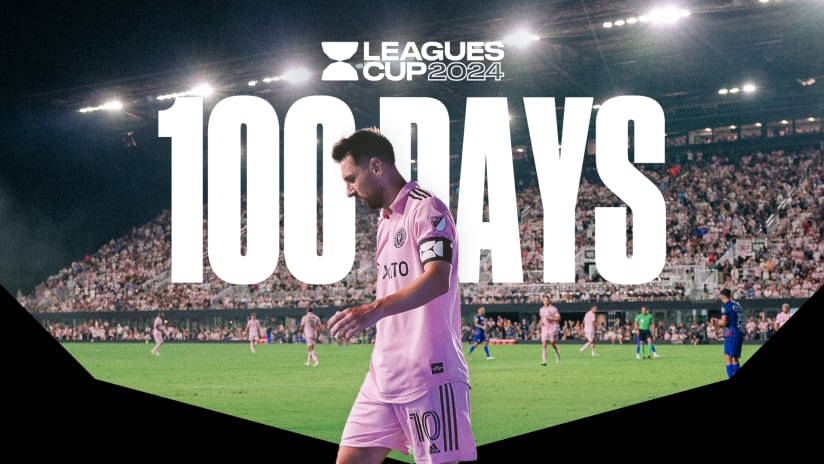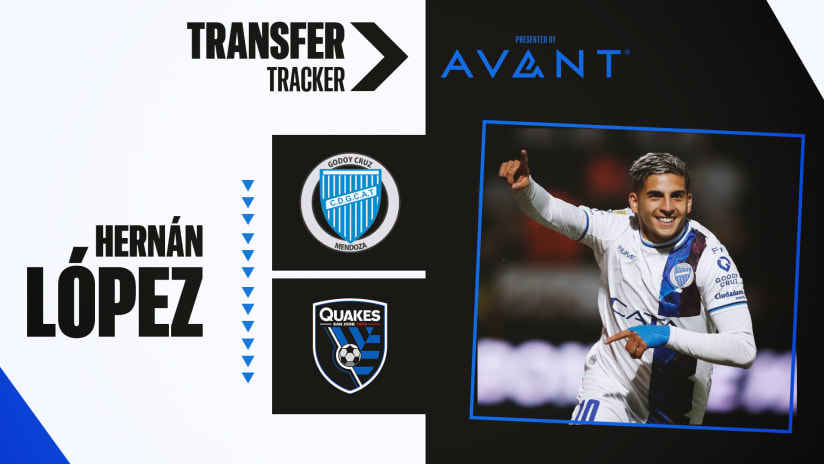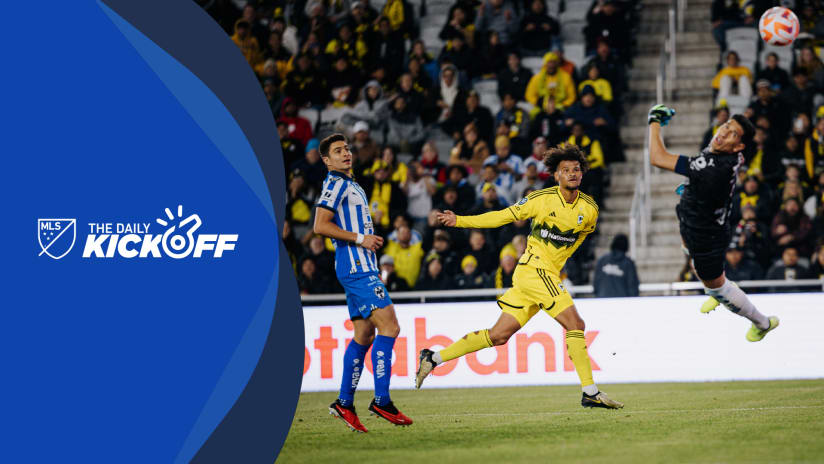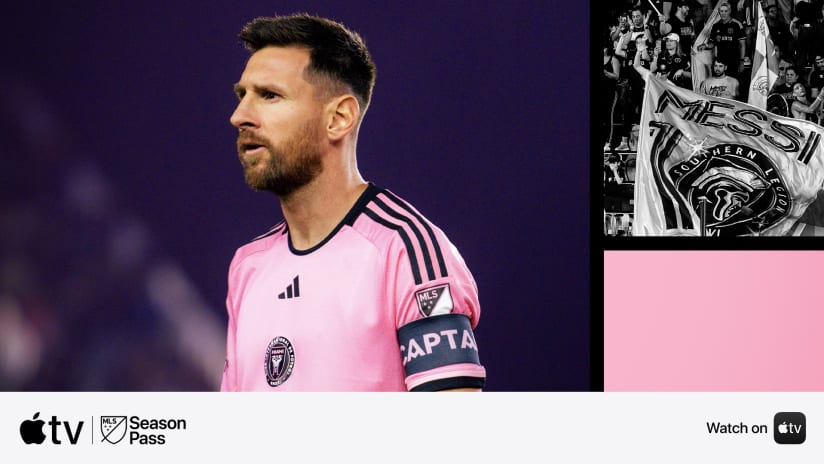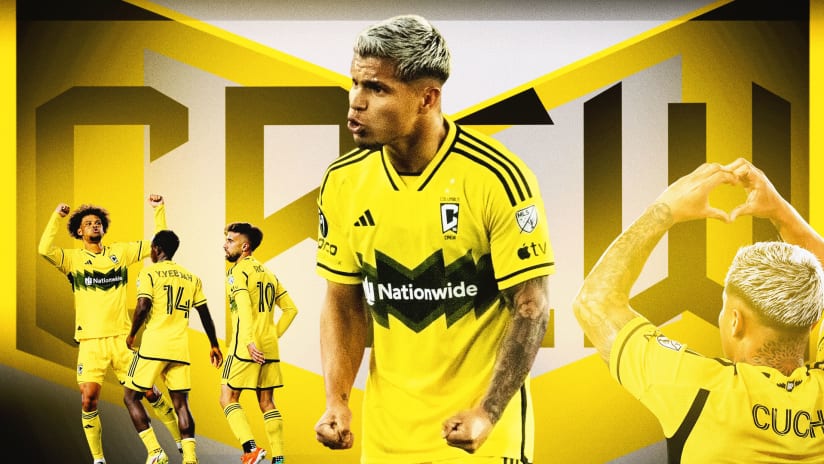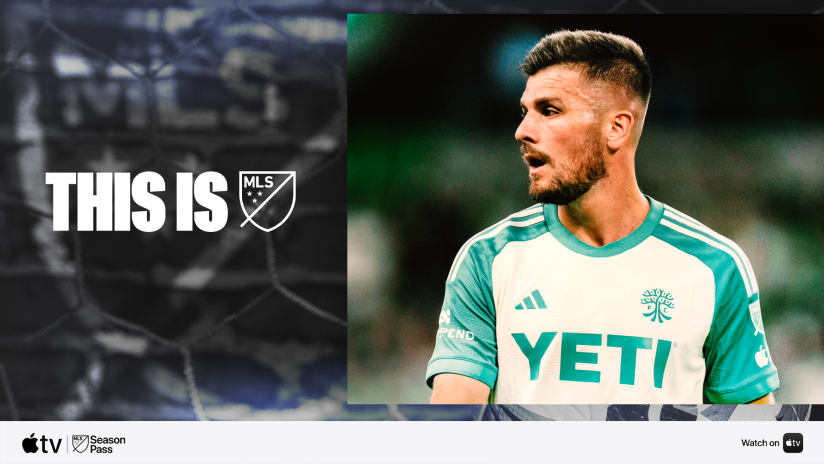CARSON, Calif. – They're the winningest coaches Major League Soccer has seen – six MLS Cup titles, six Supporters' Shields, 10 title-game appearances, the league's only two CONCACAF club titles and more than 400 wins between them – and if that seems the extent of what Bruce Arena and Sigi Schmid have in common, then listen up.
They're mirror images in so many respects, and what might seem to be fundamental distinctions – Arena as the brash New Yorker, Schmid as the engaging Californian – don't hold up as the real men, the real coaches, come into focus.
They've got far more in common than a history of success, and that's a good part of the reason, say those who have played for both men, they've built such histories.
“They're very similar, more so than people may think,” said defender James Riley, who joined Arena's LA Galaxy this year and played three seasons for Schmid with the Seattle Sounders. “They're very wise, they prepare very well, they're able to lift players, and they can see things that others can't see from the outside, such as how to construct their team. They want good guys in the locker room and good men. They're a lot more similar than different.”
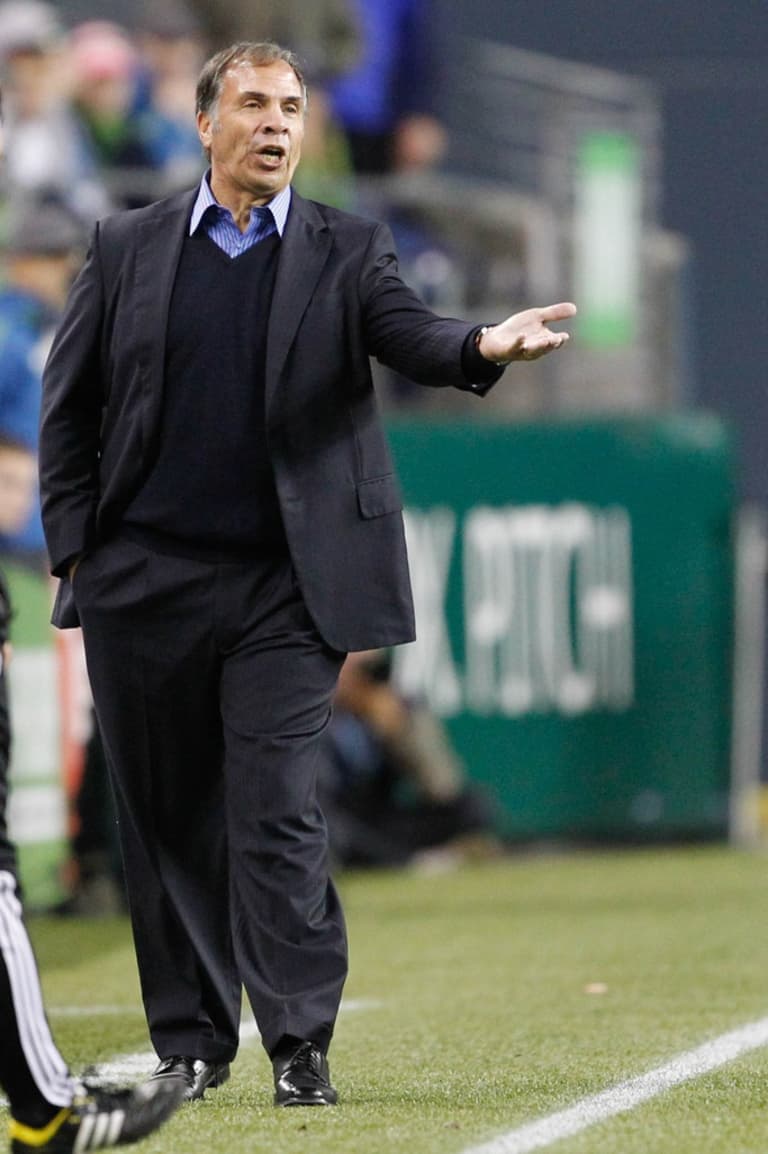
Arena and Schmid face off Sunday evening in Seattle, with the Western Conference's slot – and home field – in the Dec. 7 final of the 2014 MLS Cup Playoffs, presented by AT&T, hanging in the balance (9:20 pm ET on ESPN, ESPN Deportes, WatchESPN, RDS2 and
MLSsoccer.com in Canada
). Arena's Galaxy
hold a 1-0 edge in the home-and-home series
and, with a victory, draw or one-goal loss in which they score would advance to their fourth title game in six years under the Brooklyn-born master.
They've faced off as coaches 30 times, with Arena (pictured, right) holding a 13-10-7 edge – that includes one win for each as college coaches, Arena at Virginia and Schmid at UCLA – and once as players, with Schmid's UCLA side beating Arena and Cornell in the 1972 NCAA tournament.
Arena, 63, who has guided D.C. United (1996-98), New York Red Bulls (2006-07) and the Galaxy (since August 2008), has won a record four titles, two with D.C. in the 1990s and the 2011 and 2012 crowns with LA. He's fashioned a 176-104-64 regular-season record in a dozen MLS seasons – 205-113-69 including playoffs.
Schmid, 61, has coached the Galaxy (1999-2004), Columbus Crew (2006-08) and Sounders (since 2009), is looking to become the first MLS coach to win championships with three clubs, after claiming titles in 2002 with LA and 2008 with the Crew. He's got the most wins (and most losses) among MLS coaches, with a 207-140-105 mark in 15 seasons, 230-155-113 with the postseason thrown in.
“I don't think there's two coaches that understand the league better than Bruce and Sigi, as far as player acquisitions and rules,” said Galaxy assistant coach Pat Noonan, who played for Schmid in Columbus and for Arena with the US national team and one season in L.A. “They know the ins and outs, and they know how to be successful, and they've shown that with the championships won.
“They're very passionate about what they do, and they take pride in the successes they have and the environments they build. And I've seen it first-hand. They build a positive environment, a good, competitive atmosphere for players and families to feel comfortable in, and they get the most out of their players.”
They're master tacticians – “as knowledgeable as it gets,” Noonan says – with eyes for talent, and they look for similar types of players when they build their rosters.
“They find the perfect mix of experience and then young guys that are hungry and talented and want to make a name for themselves,” said Galaxy defender Robbie Rogers, who was mentored as a youth by Schmid and played for him with the Crew. “The young guys learn from the older guys, and the older guys manage the locker room.”
Noonan says both “know how to balance a team, between youth and experience, being able to complement that on the field, as well as speed and a high soccer IQ.”
- The latest Galaxy headlines at LAGalaxy.com
“It's easy to keep [starters] happy, because they're playing,” Noonan said, “but it's the guys that aren't getting regular minutes, they know how to keep those players focused and ready when their opportunity is called upon. I think that's why you see their teams have so much success, because when you get to the dog days of summer and you lose players to injury or national-team call-ups, whatever it might be, they have players that are able to step in on their teams, and the level doesn't drop.”
Said Riley: “I think they're very selective in who they want to bring in, and I think that they examine whether it's going to be a good fit, and if it's not going to be a good fit, both are ready and willing to make moves to [fix that]. They made decisions, and they're not scared to recalculate those decisions if they don't work out.”
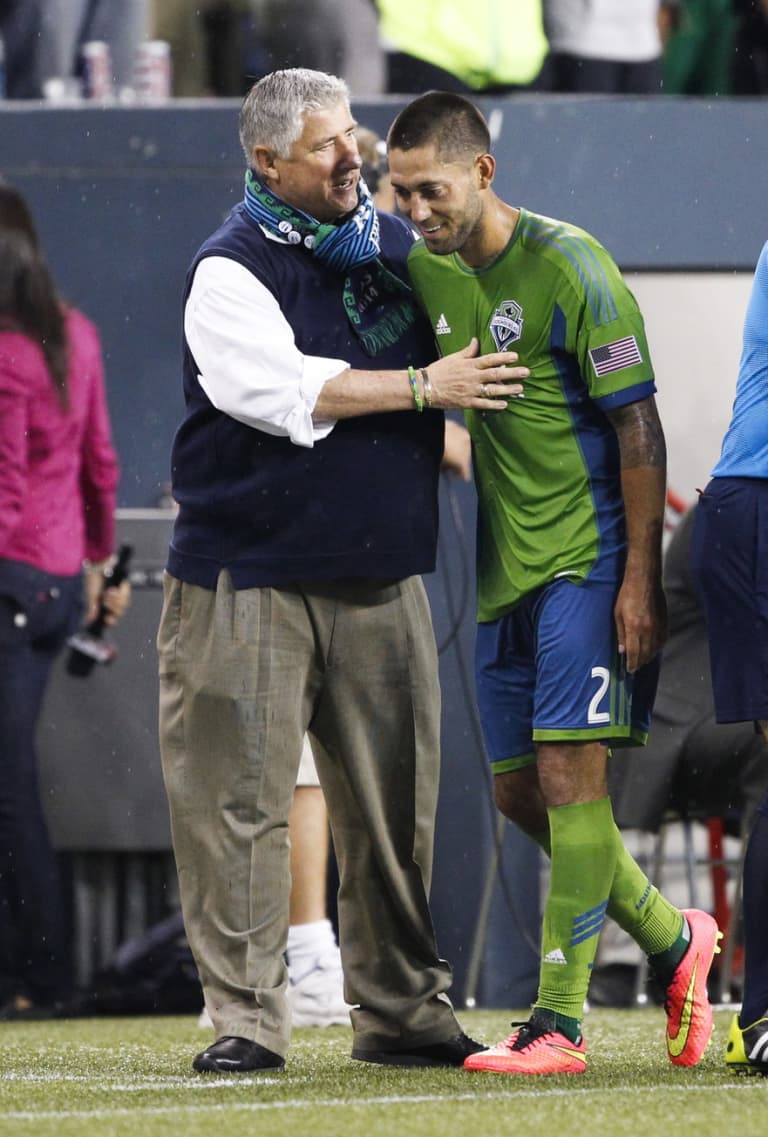
Sounders striker
Clint Dempsey
, who played for Arena with the national team, notes that both have been successful at every level. Arena won five NCAA titles and 295 games at Virginia and has been the most successful of the country's national team coaches. Schmid won three national championships and 322 games at UCLA, was on Bora Milutinovic's staff at the 1994 World Cup, and took two teams to the FIFA U-20 World Cup.
“They're coaches that have a winning mentality and always figure out ways to get their teams to perform well in big games,” Dempsey said. “They're winners, and I think that's why you've seen their careers be so good for so long and so consistent over time. It's just their mentality and their approach and how year after year they've been able to get their teams to perform well.”
The differences are all about personality, and it skews different from what's seen at the surface. Arena often comes across as arrogant in his dealings with media – it's the New Yorker in him – while Schmid, who was born in Germany but moved as a child to Southern California, just a few miles from the Galaxy's headquarters, seems more easy-going, at least in snippets the public sees.
Things aren't always as they appear.
“I'd say Sigi, at least the time I was underneath him, is more of an intense-type coach. And whatever that entails, which you can imagine,” said Cobi Jones, who played for Schmid at UCLA and with the Galaxy and for Arena with the national team. “Bruce seems to be more of a laid-back personality when it came to dealing with the players.”
Schmid can be a ranter, and Arena raises his voice far less often.
“They have very tiny, little differences when it comes to their type of personality and stuff like that,” said forward Chad Barrett, who joined the Sounders this season and played for Arena in LA a few years ago. “Just how they go about addressing the team. They command respect, which is something that I feel like a coach really needs to have.
“I'd say they're both pretty soft-spoken for the most part. They both try not to get too mad too often. But when they do, they tend to erupt. It's like a volcano that's been dormant for a while.”
That's not necessarily a bad thing.
“Sigi's the type of guy where if he's yelling at you, it means you're doing something right,” Barrett said. “If he's not yelling at you, it means you're probably not doing something right. At least when he's yelling, you know he cares.”
Galaxy goalkeeper coach Matt Reis, who played for Schmid at UCLA and with the Galaxy and for Arena with the national team, says Arena “likes to have a good time, not that Sigi doesn't, but I think you see that a little bit more in Bruce than you do in Sigi.”
The misstep in perception is largely about how they feel about dealing with media. Arena doesn't enjoy it as much as Schmid, and his sessions with beat writers can be hysterical – he'll insult the regulars (it's how you know he likes you, kind of), and the conversation can veer off to unrelated topics, such as his beloved New York Yankees or the state of his golf game – or he might just give one- and two-word answers to every question.
Schmid always is engaging with the media.
“Just spending time with Bruce now, I know that he likes to play with the media,” Reis said. “He doesn't disdain it, but it's not something that he enjoys doing. Whereas I know Sigi loves to talk soccer. If he can sit down and talk soccer with them, that's one of his favorite things to do.”
Both command fierce loyalty among their players.
“People think that players on some level have to like their coach,” said Galaxy Academy director Peter Vagenas, who played for Schmid at UCLA and with the Galaxy and Sounders and for Arena briefly with the Galaxy and in a few national team appearances. “I think most players that have played for Bruce and Sigi look back and say they enjoyed playing for them and they like the coach, like the person.
“Both do a good job of dealing not only with the athlete, but with the person, which I think is a compliment to both of them.”
There's not much debate on where Arena and Schmid stand among the U.S. soccer coaching hierarchy.
“I think it's definitely 1A and 1B,” Reis said, and Noonan agreed: “In the way they prepare, in the environment they create, and with the trophies that each had been a part of and brought to their organizations, it's hard to argue [against] that.”
Said Vagenas: “I think without question they're the best two coaches in America. They've set the standard.”



